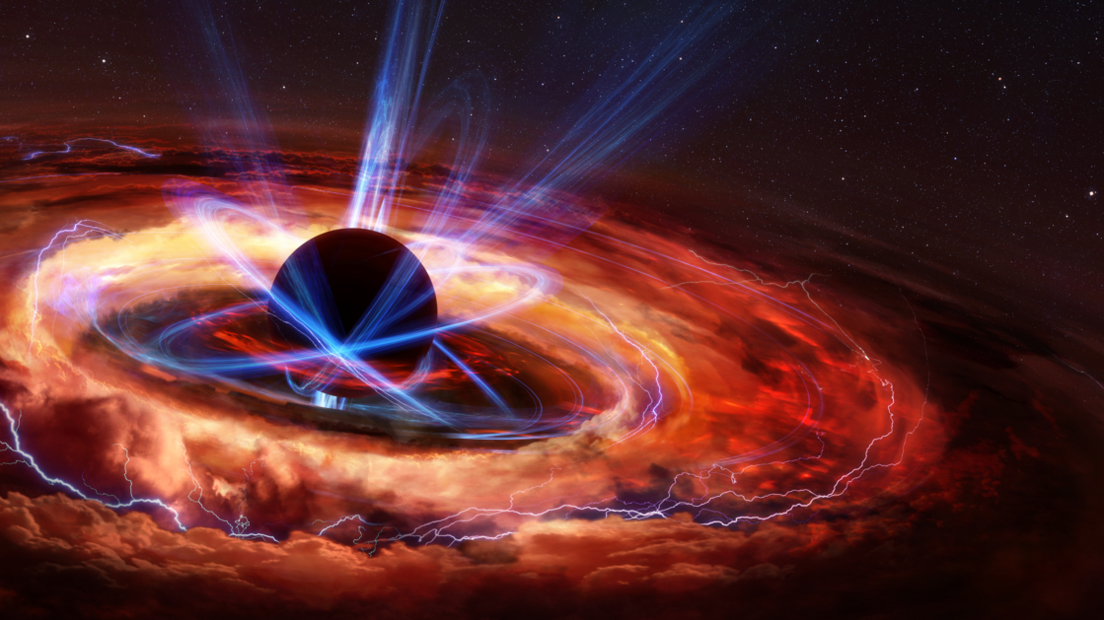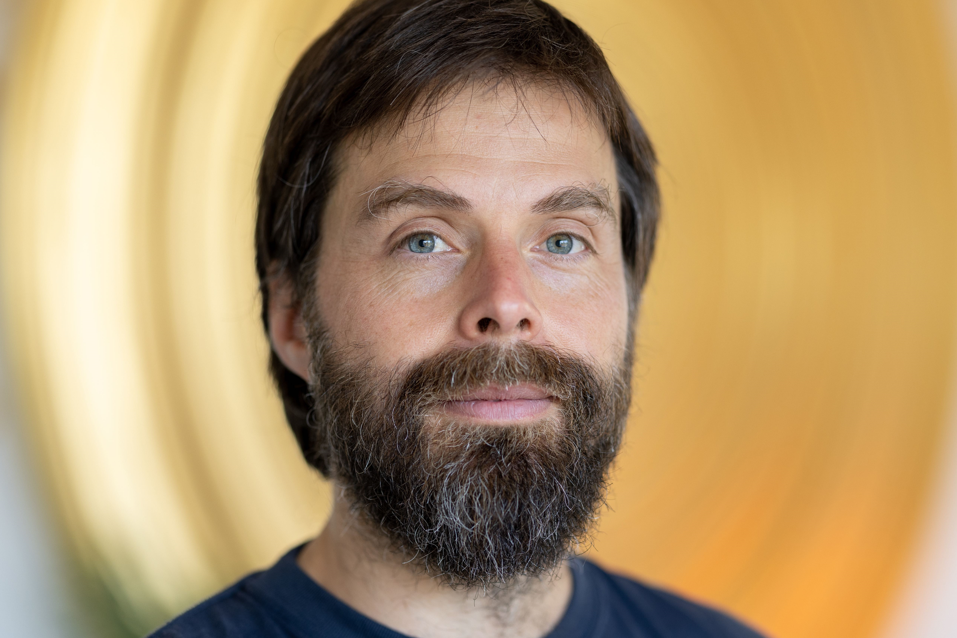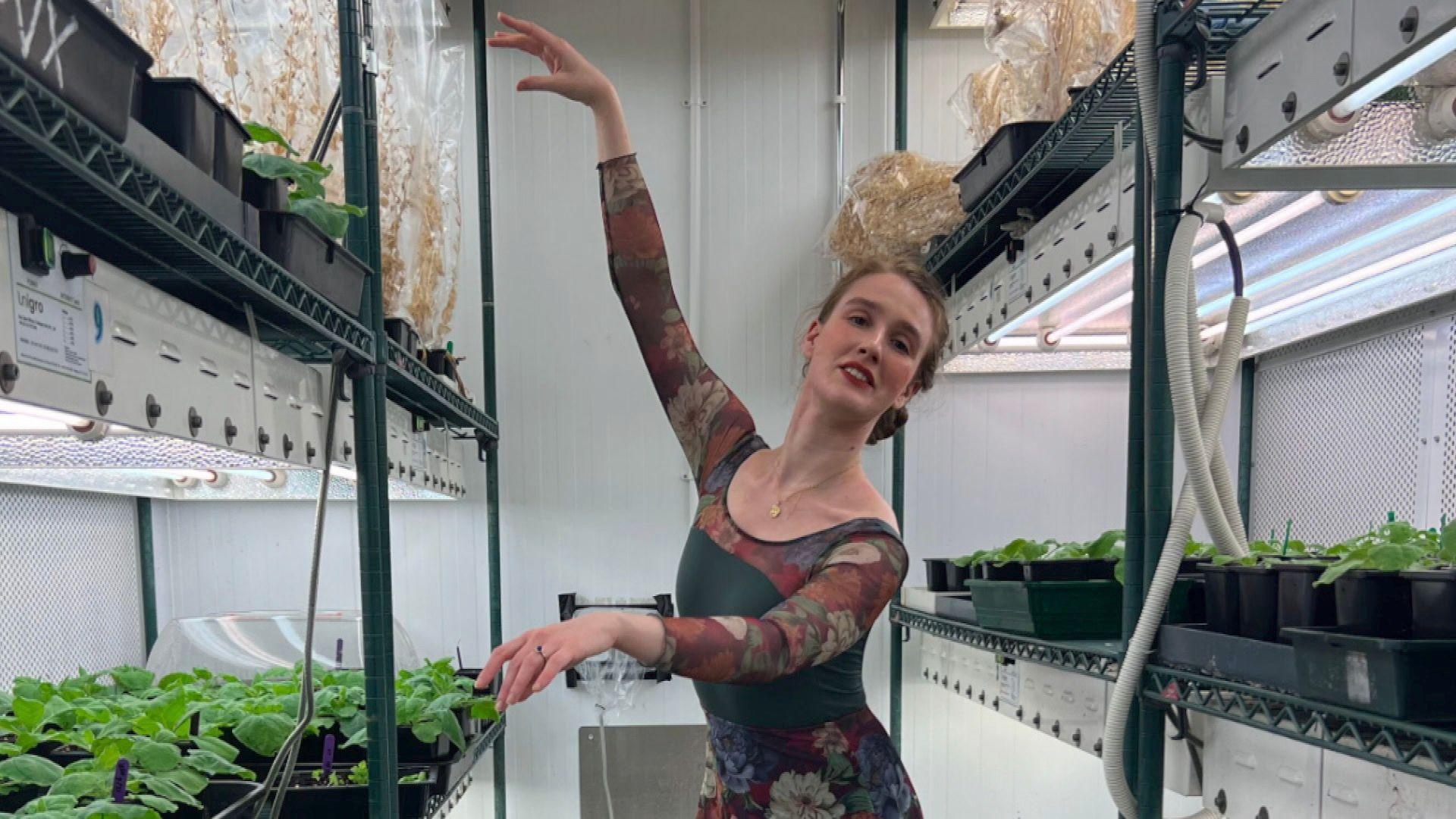What is the weirdest thing in the universe?

Are black holes, seen here as an artist's impression, the weirdest object in the universe?
- Published
London's Exhibition Road will close to traffic this weekend as the famous museums and institutions of South Kensington combine for the Great Exhibition Road Festival.
Among the series of free events taking place along the street, external, three researchers affiliated with Imperial College London (ICL) will take to the stage to try to answer one small question - what's the weirdest thing in the universe?
For ICL research fellow Mariana Carrillo Gonzalez, the answer is to be found far away from our own planet.
"My object is black holes," she says.
Black holes, external are regions of space where matter has collapsed in on itself, meaning they have such strong gravity that not even light can escape them.
But there's a key problem with them for scientists, explains Mariana.
"We still have no clue how they work.
"We can't observe them, we just observe the effects of a black hole. We observe the light that goes around the black hole and we observe how it deforms space and how things move... but we really can't see it because there's nothing that can escape from a black hole.
"We can prove they are there, we just have no idea what's inside," she adds.
"I think that's just a very weird thing."

Rita Ahmadi has nominated quantum physics as her oddest phenomena
Nevertheless, Rita Ahmadi argues her research specialism is even more bizarre - "Quantum physics, by which I mean the physics of subatomic particles.
"They have behaviours that are different from the classical physics that you see around yourself, so the rules are different," the postdoctoral researcher explains.
Such rules include that "they can be observed in two different states at the same time, which is called superposition", while they also have an unusual problem when trying to observe them as "any interaction with a quantum system changes the state of the quantum system".
Rita says such peculiarities mean "we know that the mathematics of quantum mechanics work properly so we know that the model works... but still we cannot make sense of that".
Even so, quantum science is still seen as hugely important for the future.
"My research is quantum computing and I'm building devices out of that even without understanding if it makes sense."

Fernando Ernesto Rosas De Andraca works at the University of Sussex, as well as being a research fellow at Imperial and Oxford
The other researcher taking part is Fernando Ernesto Rosas De Andraca whose area of expertise is another one full of conundrums.
"I took human consciousness as the weirdest thing I can think of," he says.
"Our best guess is that consciousness is somehow generated by the brain but most people would argue that single neurons are not conscious.
"So you have these little parts that are not conscious, you put them together and they are conscious and that's very strange."
He also points to other arguments such as "the only thing you cannot doubt is your consciousness, but at the same time consciousness is this thing that nobody else can see so everybody else can doubt it".
Elaborating further, Fernando brings up artificial intelligence (AI), declaring it as something he has become "completely obsessed" with.
"Most people believe that current AI systems are not conscious... but I think most people agree that there is no fundamental limits to say it will never be conscious so then the question is at one point it might become so," he says.
"We then get into a different arena that we have to be concerned about things like creating a system that can suffer."

The Great Exhibition Road Festival takes place on Saturday and Sunday
The reason for such existential arguments is the festival, which seeks to celebrate science and the arts for people of all ages through activities like insect yoga, external, quantum discos and robotics.
"We're always trying to find different and creative ways of exploring some of the topics that we study at Imperial," says James Romero, who is one of the festival organisers for the university.
"In this case it's challenging the researchers to tweak the public lecture format into a different format and introducing a competitive element into it."
Once the three researchers have presented their arguments, a vote will be held with those in the crowd deciding which phenomena should be considered the weirdest in the universe.
"We thought that the researchers might be too polite to be competitive but clearly that's not necessarily the case," says James, having listened to their arguments.
"I came from Oxford," replies Rita. "I take debates very seriously."
The Weirdest Object in the Universe debate is free to attend and will take place in the Sir Alexander Fleming Building at Imperial College London at 15:30 BST on Saturday.
Listen to the best of BBC Radio London on Sounds and follow BBC London on Facebook, external, X, external and Instagram, external. Send your story ideas to hello.bbclondon@bbc.co.uk, external
Related topics
Similar stories
- Published14 June 2024

- Published17 June 2022

- Published21 December 2017
